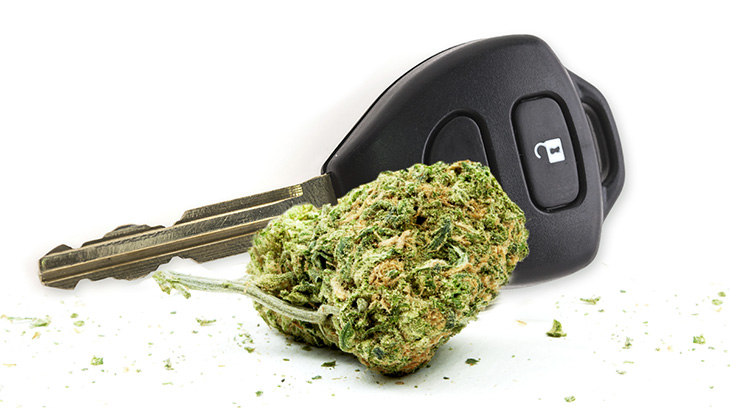
Dover, DE – Some of America’s leading non-profit cannabis policy experts convened for a special panel to dispel common myths associated with cannabis as a bill to end prohibition moves towards victory in Dover.
Delaware’s Cannabis Policy Coalition, which includes the Delaware Cannabis Advocacy Network, Delaware NORML, and twenty other local organizations, hosted a myth-busting public forum to address concerns and misconceptions surrounding cannabis and Delaware’s adult-use legalization bill, HB150.
The event featured a lively discussion about DUI, workplace safety, non-medical underage possession and prevention, and several other topics that opponents frequently point to as reasons for lawmakers to vote against legalization.
Paul Armentano, national NORML’s Deputy Director and a renowned policy coordinator started off the forum by addressing general concerns about marijuana DUI and road safety:
“The reality is, that we all share those concerns. I drive on the same roads, my family drives on the same roads, we all want safe roads,” Armentano said, “We have real world experience – now decade long experience, from states like Colorado and Washington that have changed their adult-use laws, and again, we’ve seen very little change in traffic safety trends that can be attributed to a change in these policies.”
Armentano noted, “We know this because we have multiple studies that have tracked motor vehicle accident rates in States like Washington and Colorado, in the years immediately prior to and the years following the enactment of cannabis legalization, and compared those trends to similar states that have not changed their marijuana policies. What we see is that the trends in legal states like Colorado, Washington, Oregon and California are generally no different than the traffic safety trends in other states that haven’t changed their marijuana laws.”
A peer-reviewed study published by the National Institute of Health and American Journal of Public Health reports, “changes in motor vehicle crash fatality rates for Washington and Colorado were not statistically different from those in similar states without recreational marijuana legalization.”
Shaleen Title is a former inaugural member of the Cannabis Commission of Massachusetts who now serves as Vice-Chair of Cannabis Regulators of Color. Title addressed workplace safety and liability post-legalization this way, “There is no evidence. In fact, I can understand how, perhaps, in the beginning when the first two states were legalizing, there may have been some question as to this point. But at this time in 2021, I really question whether claims like that are being made in good faith, because there is just a massive body of evidence showing none of those effects whatsoever.”
Title, also an attorney, added that one of the previous primary opponents of cannabis legalization in Massachusetts, state Senator Jason Lewis, has now reversed his anti-legalization stance since voters in that Commonwealth legalized cannabis in 2016. Lewis has since introduced a bill that would prohibit Massachusettts employers from discriminating against employees who consume cannabis after work hours.
On the topic of revenue there’s solid data. Research from Colorado and Washington, the first two states that legalized adult-use cannabis nearly a decade ago, shows that cannabis business is booming. Both states are ranked as a Forbes top five “Places for Business and Careers” while workplace accident claims are decreasing in both states.
A 2019 report issued by Washington State Department of Labor and Industries shows the prices for workers’ compensation insurance decreased three years in a row. The Colorado State Department of Regulatory Agencies reports that “loss costs” component of workers’ compensation premiums saw an 8.5% reduction in 2020, noting that this is the sixth consecutive year in the state without an increase.
Armentano urged those with questions to look up the data, “We don’t have to speculate. We don’t have to ask, ‘What if? We can simply look at the states that already have the real world experience with cannabis regulation and see that the sky has not fallen. See that their economies have not collapsed. See that politicians and the public have not expressed buyers remorse”
No state that has legalized marijuana has returned to prohibition.
Armentano added. “Many of these States economically, like Colorado, are thriving. Public polls show that a greater percentage of the public support these policies today than did when they were initially enacted. And that’s because these sort of fear mongering claims have never come to fruition.”
Dr. David Nathan, a practicing psychiatrist and the founder of Doctors for Cannabis Regulation, rebutted claims made that cannabis is a ‘gateway’ to drug addiction.
“The only way in which cannabis can lead to other drugs is when it is sold with them, and that only happens in illegal markets”, Dr. Nathan remarked.
“In regulated markets, it is sold by itself, it is labeled properly, and people know what they are getting. And when it comes to underage use with regulated or unregulated markets, when cannabis is legalized in a particular place, it sends the message to our kids that science matters, and that we are creating a legal market distinction between adult-use, which is generally safe, and underage use, which is not.”
Dr. Nathan added that research is showing that states that have legalized have seen a 20-25% reduction in opiate overdoses, noting that there were over 90,000 deaths from drugs just last year, – none of which involved cannabis.
“If you could decrease that percent, that number of 90,000 people by 1% you would do it,” said Dr. Nathan, “If you could decrease it by 10%, you would do it. But if we are talking about 20 or 25% decrease in overdoses, then it’s really a no brainer.”
HB150 passed the House Health and Human Development Committee 10-5, with bi-partisan support, and is awaiting action by the House Appropriation Committee.
University of Delaware polls show a consistent 61% majority public support for legalization, among Delaware residents.
A full recording of the forum can be found here: https://www.facebook.com/DelawareCANorg/videos/1837958636385313/
Delaware Cannabis Advocacy Network is an all-volunteer, citizen-led, grassroots advocacy group. Since 2013 our members have been advocating to remove all criminal penalties for cannabis, initiate criminal justice reforms for those adversely affected by cannabis prohibition, and replace the current illicit cannabis market with a safe, legal, and well-regulated industry.
Press Contact: Zoë Patchell, Executive Director of Delaware Cannabis Advocacy Network (302) 236-6984 zoe@delawarecannabis.org










